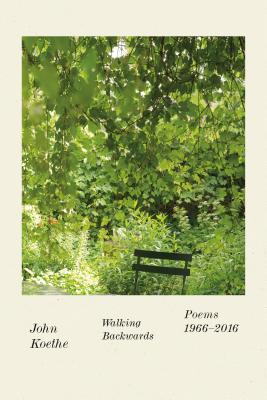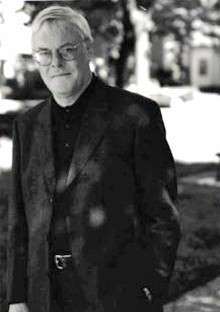
Collected poems from America’s searching and thoughtful philosopher-poet . . . There ’ s something Comforting about rituals renewed, even adolescents ’ pipe dreams: They ’ ll find out soon enough, and meanwhile find their places In the eternal scenery, less auguries or cautionary tales Than parts of an unchanging whole, as ripe for contemplation As a planisphere or the clouds: the vexed destinies, the shared life, The sempiternal spectacle of someone preaching to the choir While walking backwards in the moment on a warm spring afternoon. John Koethe’s poems―always dynamic and in process, never static or complete―luxuriate in the questions that punctuate the most humdrum of routines, rendering a robust portrait of an individual: complicated, quotidian, and resounding with truth. Gathering for the first time his impressive and award-winning body of work, published between 1966 and 2016, Walking Backwards introduces this gifted poet to a new, wider readership.
Author

John Koethe is an American poet, essayist and professor of philosophy at the University of Wisconsin–Milwaukee. Koethe is originally from San Diego, California. He was educated at Princeton University and Harvard University.Koethe's published work includes Blue Vents (Audit/Poetry, 1969), Domes (Columbia University Press, 1973), The Late Wisconsin Spring (Princeton University Press, 1984), The Continuity of Wittgenstein's Thought (Cornell University Press, 1996), Falling Water (HarperPerennial, 1997), The Constructor, (HarperFlamingo, 1999), Poetry at One Remove (University of Michigan Press, 2000) and North Point North: New and Selected Poems (HarperCollins, 2002). His most recent books include Scepticism, Knowledge, and Forms of Reasoning (Cornell University Press, 2005), Sally's Hair (HarperCollins, 2006), Ninety-fifth Street (Harper Parennial, 2009) and ROTC Kills (Harper Perennial, 2012). Koethe has also contributed poetry and essays to publications including Poetry, Paris Review, Quarterly Review of Literature, Parnassus, and Art News.His work has been included in anthologies of poetry, including The Best American Poetry (2003).Additionally, he was selected to contribute his views on contemporary poetry for the book Ecstatic Occasions, Expedient Forms, which billed him as one of "85 leading contemporary poets."